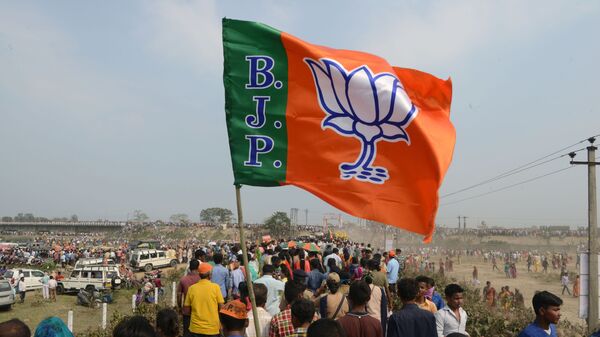THe chiefs of two Indian states - West Bengal and Punjab – on Monday took their fight to the country’s ruling Bharatiya Janata Party (BJP) by calling on all secular-minded political parties and civil society groups to isolate the BJP over the contentious CAA.
The Citizenship Amendment Act (CAA) has evoked massive protests in different parts of the country for allegedly discriminating against Muslim immigrants from Pakistan, Afghanistan, and Bangladesh who hope to obtain Indian citizenship.
West Bengal Chief Mamata Banerjee, addressing a political rally of her Trinamool Congress (TMC) party in the state’s Purulia district, called out the BJP government for attempting to brand those protesting against the CAA as "anti-nationals".
She reiterated that under her watch, the State of West Bengal would stonewall every attempt by the federal government to update the National Population Register (NPR) and introduce the proposed National Register of Citizens (NRC).
The NPR is a register of “usual” residents of the country. It contains information collected at the village, town, district, state and national level under provisions of the 1955 Citizenship Act, and the 2003 Citizenship Rules (Registration of Citizens and Issue of National Identity Cards). A “usual” resident is identified as a person who has resided in an area for the past six months or more, or a person who intends to reside in that area for the next six months.The objective of the NPR is to create a comprehensive identity database in the country.
The NRC, on the other hand, is a database of Indian citizens. The NRC process demands proof of citizenship from respondents and the CAA is the instrument being used to facilitate that process. Those who cannot provide proof of citizenship can face deportation or detention in long run. In the NPR, there is no need for providing any document.
“I would appeal to everybody to join hands against the BJP and isolate them everywhere," Banerjee said ahead of her five-kilometre protest march in Purulia.
"I will not stop my protest until the CAA is withdrawn. Just ensure that your names are there on the voters' list. The rest will be taken care of by me. No one will have to leave this country," she stated.
In Punjab, State Chief Captain (Retd.) Amarinder Singh also said he would resist the implementation of the CAA in the region with all the power at his command. "The Congress (party) will fight it tooth and nail," the ANI news agency quoted him as saying.
Punjab Chief Minister's Office: CM Captain Amarinder Singh's govt will not allow implementation of #CitizenshipAmendmentAct in Punjab& Congress would continue to fight it tooth&nail, declared the CM while addressing party leaders&workers at a protest march. (File pic) pic.twitter.com/W95CH8H4jx
— ANI (@ANI) December 30, 2019
On 26 December, Singh accused the Shiromani Akali Dal (SAD), a key ally of the ruling BJP and the main opposition party in Punjab State, of having double standards regarding the contentious citizenship law and the NRC.
"It was patently obvious that the Akalis were playing double games in the matter. It was clear that the SAD leaders had decided to backtrack on their earlier stand (on the citizenship law) in view of the public protests and backlash triggered by CAA/NRC," Singh said in a statement.
The SAD must come clean on the CAA and its role within the ruling National Democratic Alliance (NDA), he urged, as the public isn’t willing to be fooled by “dual standards and misleading statements”.
Over the past few weeks, protests, some of them violent, have been taking place across the country over the citizenship law, which grants citizenship to Hindus, Sikhs, Jains, Parsis, Buddhists and Christians from Pakistan, Afghanistan, and Bangladesh who came to India on or before 31 December, 2014.


